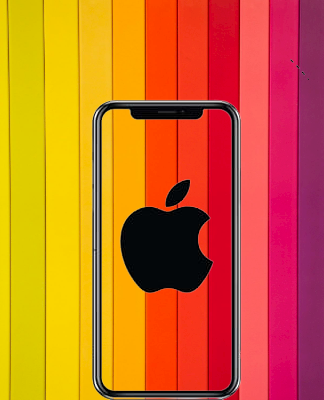When a job seeker is invited to an interview, it means they’ve already done something right. They have probably perfected their LinkedIn profile, hired a professional CV creation service, and made their social media look competent. Now, it’s time to nail the interview and land the job. And one of the important questions a lot of interviewers ask is what are the candidate’s sources of motivation.
Be Honest
One of the biggest mistakes a job seeker can make during an interview is lying too much to make oneself look like a “perfect candidate.” Sure, it’s fine to gloss over something you don’t want your potential employer to know. But if your lies are too bold and poorly thought out, an experienced interviewer will smell them instantly.
The best approach is to stick to the truth but focus on the things that make you look good. For example, it’s a losing strategy to say that you’re motivated mainly by money (even if it’s true). But if you mention performance bonuses as one of the things that feed your competitiveness and desire to be productive, no one will dare accuse you of shallowness.
Don’t Be Too Honest, Though
Most job seekers are well-aware of the main dos and don’ts of a job interview. You probably know what to wear on an interview, not to badmouth your former employer, and avoid criticizing the company you’re applying for from the get-go. Another major mishap is being too honest when talking about your weaknesses and sources of motivation.
So stay as close to the truth as possible without risking looking like a bad candidate for the position. For example, if the job you’re applying for is all about teamwork, it’s not a good idea to say that you’re motivated by competition. Instead, say that working side-by-side with other skilled and experienced professionals is what inspires you. The message is the same, but the latter sounds more appropriate.
Use This Question to Show You’ve Done Your Research.
Every job seeker should know that hardly any questions hiring managers ask during the interview come from simple curiosity. The “what motivates you?” question is no exception. When the interviewer asks it, what they really want to know is how well your personality and approach to work align with the job. Or they may be wondering how much you know about the position and company.
So show that you’ve researched both the job you’re applying for and the company. List everything about the company’s corporate culture that appeals to you and articulate how it can help you stay motivated. Any interviewer will appreciate your diligence and preparation. And you’ll instantly look like a potential match.
Focus on Intangibles
Once again, there’s nothing wrong with wanting to earn decent money. After all, extrinsic factors akin to pay and benefits are among the main predictors of perceived job quality. Even Maslow’s hierarchy of needs shows that one can’t care about relationships unless they have a roof over their head. Every interviewer understands this.
Still, don’t jump into extrinsic rewards once asked about your sources of motivation. It’s okay to mention them later. But the first sentences or two of a candidate’s response should be about intangibles. For example, talk about the corporate culture, your love for data analysis (if the position involves it), your need for diverse and challenging responsibilities, etc.
Highlight Your Accomplishments
Also, the “what motivates you?” question is a fantastic opportunity to talk about one’s professional accomplishments. For example, suppose teamwork motivates you, and the job you’re applying for implies a lot of it. In that case, you can talk about a successful team project you led in your previous job and how energizing the group environment was for you.
At the same time, don’t deviate from the topic. It will likely frustrate the interviewer and won’t earn you their sympathies. Or worse, they might assume that you’re trying to avoid answering the question because you don’t know your sources of motivation (which screams incompetence and lack of self-awareness).
A Few Examples
We have prepared a few model answers to the “what motivates you?” question that would satisfy almost every hiring manager. Choose the one that’s true for you and fits the job requirements.
- Example #1. “An opportunity to work in a creative and productive team environment is what motivates me the most. I appreciate team meetings for the idea-sharing and brainstorming opportunities they provide. I love to be the sounding board for my teammates’ ideas and for them to be mine.”
- Example #2. “Relationships with my colleagues and the overall positive climate are the things I seek in a workplace. I have actually led the intra-team communication transformation project in my previous job, and the results exceeded our team’s expectations. Something as simple as short daily team meetings and once-a-week one-on-ones with our team leader has made us a much more cohesive and high-performing team.”
- Example #3. “The pandemic-caused changes in work schedule have shown me that I am much more productive and satisfied with my job when I am allowed flexibility in terms of where I work from and what my working hours are. So I appreciate Avalon’s (the name of the company the candidate is being interviewed at) flexibility and respect for employees’ work-life balances.”
TL;DR
The key to a good response to the “what motivates you?” question at a job interview is relevance. Your answer should be honest yet tailored to the job requirements and the company’s culture. Show the interviewer that you’re the right fit for the position and have done your research before the interview. And don’t speak of the pay and benefits first; focus on intangibles instead.
















